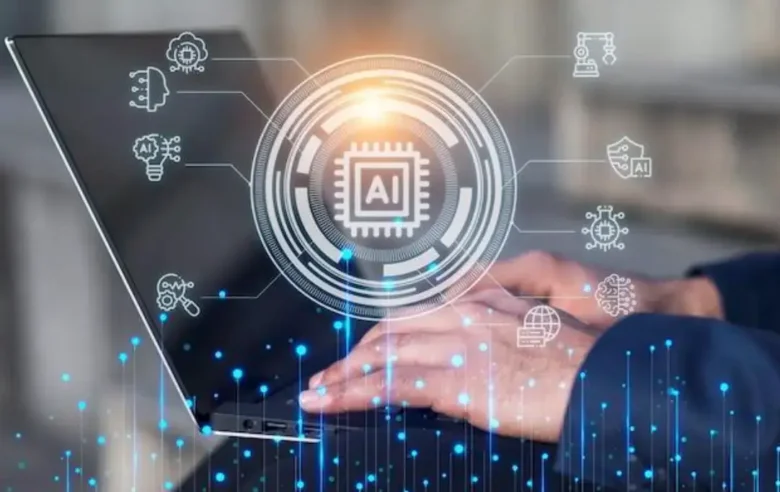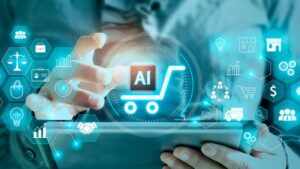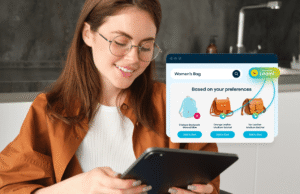AI-powered marketing enables marketers to scale personalized strategies and optimize campaigns for maximum impact. Adopting AI requires taking seven essential steps.
These seven AI marketing strategies include personalization, automation of responses on social media platforms, content production and curation, customer service, data-driven decision making and more.
1. AI-Powered Automation
AI-powered automation handles repetitive tasks so humans can focus on strategy, creativity and decision-making. It reduces human labor costs as well as error rates while improving efficiency and accuracy.
E-commerce businesses can implement AI chatbots to automate customer service, with instantaneous responses for customer queries. In addition, AI-powered recommendation engines customize content by tracking user behaviors and purchasing patterns.
AI systems can identify and mitigate risks, like fraud or equipment failure in manufacturing, in real time and save businesses money by preventing costly mistakes from happening.
Marketers must plan carefully when integrating Artificial Intelligence (AI) into their operations, making sure their technology partners only access data pertinent to achieving specific business goals while upholding ethical AI practices that ensure its use is used ethically and sustainably for sustainable business expansion.
2. AI-Powered Personalization
AI marketing is revolutionizing how brands engage with their customers, providing more targeted communication and tailored experiences for each one. AI-powered customization includes everything from product recommendations and email campaigns to social media engagement.
Generative AI enables marketers to generate content quickly, on demand and at scale – saving valuable resources for use elsewhere – such as email templates, graphics and ads production. Generative AI allows them to focus more energy on strategy and relationships rather than content production alone.
Brands that employ AI to personalize their marketing can increase customer loyalty and develop trust among consumers by creating tailored experiences for them. However, it’s essential that businesses disclose how AI is being used in marketing to avoid damaging trust among customers or violating privacy laws.
3. AI-Powered Real-Time Attribution
AI is revolutionizing marketing attribution by enabling marketers to replace guesswork with data-driven accuracy. Traditional models like first-touch and last-touch attribution oversimplify how marketing touchpoints impact conversions by disregarding nonlinearity, multiple devices and time lags.
Real-time attribution insights enable marketers to make quick adjustments that enhance campaign performance. Furthermore, they can identify customer trends and market changes quickly to ensure their marketing efforts are optimized.
AI can also assist staff by automating routine tasks and freeing them up for more creative, high-impact work, such as automating data entry/transcription processes, optimizing lead scoring/marketing campaigns, and offering tailored customer interactions – giving sales teams more time and focus to prioritize leads with the greatest chances of conversion while offering improved overall customer experiences.
4. AI-Powered Dynamic Pricing
AI can assist businesses in breaking free from standard one-size-fits-all pricing models and individualizing prices accordingly, which allows retailers to increase revenue and profitability without increasing promotional spend by tailoring prices based on customer behavior, competitor pricing, inventory levels and so forth.
Stitch Fix utilizes an AI-powered recommendation engine to analyze customer style preferences, sizes and price sensitivity before curating five pieces for every Fix shipment based on this analysis. This personalized experience drives customer retention rates up and conversions up significantly.
AI can also streamline merchandising and pricing processes by automating tasks and increasing data accuracy, helping companies improve efficiency, effectiveness, reduce operational bottlenecks, test and refine pricing strategies and tactics for greater business growth and provide operational savings.
5. AI-Powered Conversion Rate Optimization
Utilizing AI to maximize conversions allows businesses to drive traffic, increase revenue and meet business objectives. AI tools detect issues while providing predictive analytics so marketers can take proactive measures in order to increase conversions.
AI-powered CRO helps companies tailor user experiences based on individual behavior and preferences, leading to higher engagement and ultimately conversions.
AI tools also automate A/B testing to increase conversions, enabling businesses to test hundreds of variations quickly in real-time to optimize their pages for maximum performance.
AI technology also identifies opportunities for conversion and recommends subsequent actions based on historical performance, allowing businesses to quickly change their marketing strategies to capitalize on any emerging opportunities quickly and profit from them quickly. This feature is especially advantageous to ecommerce businesses which face high customer acquisition costs and returns on advertising spend.
6. AI-Powered Customer Service
AI allows companies to provide more tailored customer experiences by answering simple queries autonomously and freeing human agents up for more complex inquiries, helping retain customers while building loyalty that fuels growth.
AI tools enable marketers to analyze vast data sets and unlock insights to enhance marketing strategies, processes and campaigns. Predictive analytics identifies customer behavior patterns to optimize lead scoring, churn prediction and campaign optimization while AI-powered recommendation engines, natural language processing and programmatic advertising increase customer engagement, sales conversions and ROI.
Organizations looking to scale AI marketing initiatives need to enlist advocates across core functional areas: IT must support workflow changes and tech infrastructure upgrades, finance must validate budget allocations and talent strategies must ensure they secure the necessary skills for success. Finally, business leaders must set clear goals and expectations regarding how AI will improve marketing practices and business results over time.
7. AI-Powered Content Curation
With AI-powered content curation, marketers can provide tailored experiences that increase customer engagement and boost business growth. Leveraging predictive analytics and machine learning techniques, AI can identify patterns and trends within user data to better understand user needs and deliver highly relevant material.
HOLT CAT used AI to devise a content marketing campaign tailored directly to potential customer concerns, creating trusting relationships and developing long-term loyalty among them.
AI-powered content curation can be more efficient than manual methods, keeping up-to-date on current trends while being cost-effective. However, it’s important to keep in mind that AI algorithms may only be as unbiased as the data they receive, making ongoing optimization necessary.




